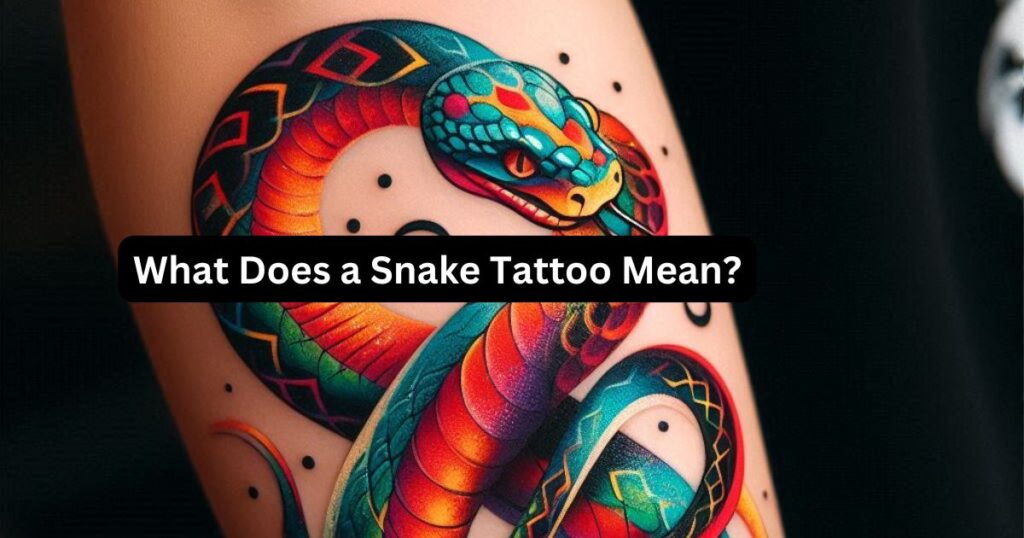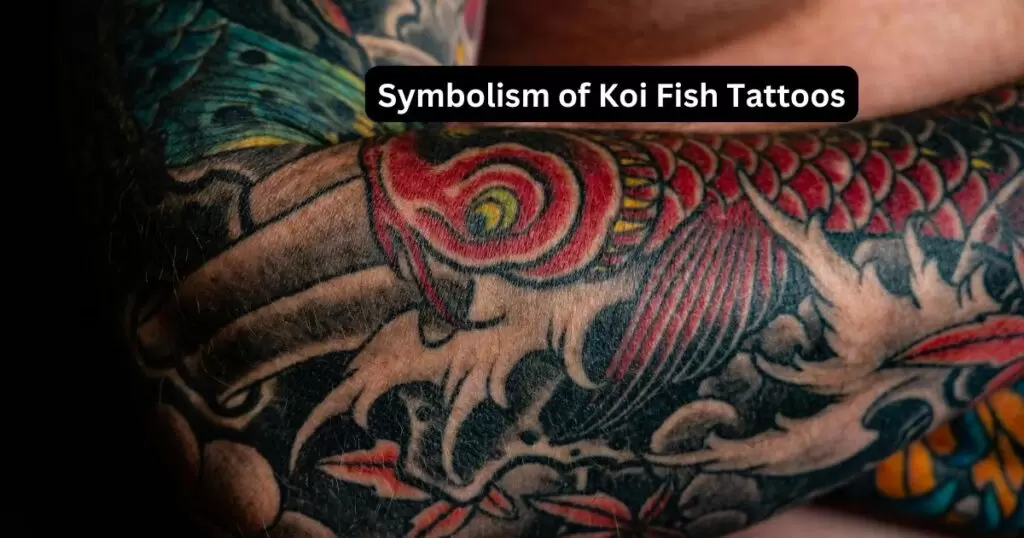Snake tattoos carry profound meanings that date back centuries. A snake tattoo means transformation, healing, and duality.
This powerful imagery draws from various cultures and has both positive and negative connotations. Understanding these meanings can help you decide if a snake tattoo aligns with your personal beliefs and life experiences.
Transformation and Rebirth
One of the most common meanings associated with snake tattoos is transformation. Snakes shed their skin, symbolizing renewal and the ability to change. This process of shedding represents letting go of the past and embracing new beginnings.
People who choose snake tattoos often identify with the idea of personal growth and transformation. This makes the snake a fitting emblem for those who have overcome challenges or are entering a new phase in their lives.
In ancient mythology, the snake is often linked to the cycle of life, death, and rebirth. The ouroboros, a symbol of a snake eating its tail, embodies this eternal cycle.
It signifies the idea that life is a continuous loop of renewal. For some, a snake tattoo might serve as a reminder of the cyclical nature of existence, encouraging resilience and perseverance.
Healing and Protection
Snakes also symbolize healing and protection. In Greek mythology, the Rod of Asclepius, a serpent-entwined staff, represents medicine and healing. This image is still used in modern medical symbols. A snake tattoo can reflect a connection to the healing arts or a personal journey of healing.
In addition to healing, snakes are seen as protectors in many cultures. In ancient Egypt, the cobra was a symbol of royalty and divine authority, often depicted on the crowns of pharaohs.
The snake’s ability to strike swiftly and with deadly precision made it a symbol of protection. A snake tattoo can therefore represent a guardian or protective force in one’s life, a reminder to stay vigilant and defend oneself when necessary.
Duality and Ambiguity
The snake embodies duality, representing both good and evil, life and death. This duality is evident in how snakes are viewed across different cultures.
In Christianity, the snake is often associated with temptation and sin, as seen in the story of Adam and Eve. However, in other cultures, snakes are revered as symbols of fertility and life. This ambiguity adds depth to the symbolism of a snake tattoo.
For some, it may represent the balance between opposing forces—light and dark, creation and destruction. A snake tattoo can serve as a reminder of the complexities of life and the need to navigate both sides of the human experience.
Fertility and Life
In various cultures, snakes are symbols of fertility and life. The serpent’s association with the earth and the cyclical nature of life connects it to concepts of creation and birth.
In ancient cultures, such as those in Mesoamerica, snakes were revered as symbols of life-giving forces. The Aztec god Quetzalcoatl, a feathered serpent, was associated with creation, fertility, and the renewal of life.
A snake tattoo can embody these qualities, serving as a symbol of life’s creative and fertile energy. It can also represent a connection to nature and the earth, reflecting a deep respect for the natural world.
Power and Authority
Snakes have long been symbols of power and authority. Their ability to strike fear into the hearts of those who encounter them is one reason for this association. In many cultures, the snake is seen as a creature of great power, commanding respect and awe.
In Hindu mythology, the serpent god Naga is a powerful figure associated with water, rain, and fertility. Naga represents both creation and destruction, embodying the dual nature of power. A snake tattoo can symbolize this kind of authority and control, reminding the wearer of their inner strength and ability to influence their surroundings.
Read Also: What Does a Dragon Tattoo Mean?
Wisdom and Knowledge
Snakes are often associated with wisdom and knowledge. In many cultures, they are seen as creatures of great insight, able to navigate the complexities of life with ease. This association comes from the snake’s ability to move silently and observe the world around it, taking in information and using it to its advantage.
In ancient Greece, the snake was linked to the oracle of Delphi, where it was believed that the serpent could provide wisdom and guidance. A snake tattoo can represent a quest for knowledge and a desire to understand the deeper mysteries of life.
Temptation and Sin
While snakes are often revered for their positive qualities, they are also linked to temptation and sin, especially in Western cultures. The biblical story of Adam and Eve casts the snake as a tempter, leading humanity into sin. This image has persisted over the centuries, influencing how snakes are perceived in modern culture.
A snake tattoo can represent the darker aspects of human nature, serving as a reminder of the temptations that one must overcome. It can also symbolize the struggles between good and evil within oneself, highlighting the moral challenges that life presents.
Renewal and Immortality
Snakes are also symbols of renewal and immortality. The ouroboros, as mentioned earlier, is a powerful emblem of this idea. The image of a snake consuming its tail symbolizes the endless cycle of life, death, and rebirth. This concept of renewal is central to many ancient belief systems, where the snake is seen as a creature that never truly dies but is constantly reborn.
A snake tattoo can embody this sense of renewal, representing the idea that life is a continuous journey of growth and change. It can also symbolize immortality, suggesting that the spirit lives on even after the body has perished.
Connection to the Divine
In some cultures, snakes are seen as divine creatures, connected to the gods and the spiritual realm. In Hinduism, the snake is associated with the god Shiva, who is often depicted with a serpent coiled around his neck.
The snake represents the cosmic energy known as Kundalini, which is believed to reside at the base of the spine and can be awakened through spiritual practices.
A snake tattoo can represent this connection to the divine, serving as a symbol of spiritual awakening and enlightenment. It can also reflect a belief in the power of the serpent as a guide on the path to higher consciousness.
Individual Interpretation
While snake tattoos carry a range of traditional meanings, the significance of the tattoo ultimately lies with the individual. For some, a snake tattoo may symbolize personal transformation or a connection to nature.
For others, it may represent protection, power, or wisdom. The meaning of a snake tattoo can be as unique as the person who wears it.
When choosing a snake tattoo, it’s important to consider what the symbol means to you personally. Whether you resonate with the idea of renewal, protection, or duality, a snake tattoo can serve as a powerful reminder of your values and experiences.
The Versatility of Snake Tattoos
One of the reasons snake tattoos are so popular is their versatility. Snakes can be depicted in various styles, from realistic to abstract, and can be incorporated into a wide range of designs. Whether coiled around a sword, intertwined with flowers, or paired with other symbols like skulls or hearts, the snake can adapt to different artistic interpretations.
This versatility allows for a high degree of personalization. You can choose a design that resonates with your personal aesthetic and the message you want to convey. The snake’s fluid form also lends itself well to different placements on the body, from the wrist or ankle to a full back piece.




